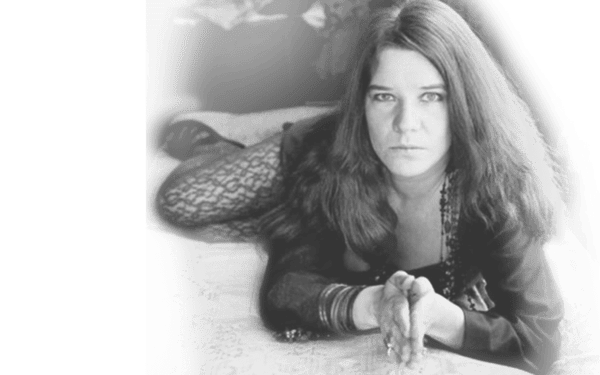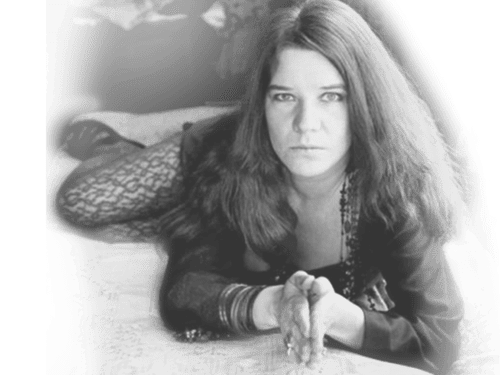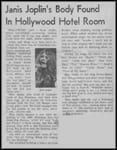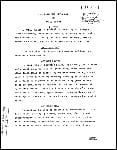Janis Joplin was more than a talented musician — she was a symbol of her time. Known too for the wild and ultimately destructive lifestyle she chose, Joplin is a landmark figure in our nation’s cultural history. Alice Echols’s new book, Scars of Sweet Paradise: The Life and Times of Janis Joplin, takes a provocative look at this fallen queen of psychedelic rock. Here, iVillagers talk with Alice and find out what it was like to dig into such a dark and stormy subject, what she learned along the way, and more.
iVillager cl-Bosbaby: Would you take a few minutes and tell us about yourself and your book Sweet Scars of Paradise?
Alice Echols: Well, I’m an expert on the 1960s, and my first book was a history of the women’s movement. I live in Los Angeles, where I write and teach at the college level. I used to be a funk disco DJ, too. Scars of Sweet Paradise grew out of a book I was trying to write about rock and roll. As I did the research for it, I became interested in Janis. I’m 49 and can remember her. I got interested in her again — for who couldn’t be interested in her when she was alive? I wanted to make a case that Janis was more than just a poster child for the ’60s dysfunctional, that she was gifted, bright and funny. I wanted to put her despair and rage into the context of the ’60s. Many others shared much of what she felt, like Jerry Garcia.
iVillager scarlett677: Can you talk a bit about her death?
Alice Echols: Well, I don’t know if we will ever know the full truth of what happened that night — but I don’t think she committed suicide at all. The official reason for death was an accidental OD. I think that was true. She was a little drunk at the time, and hadn’t been using a lot of drugs because she was trying to get off the smack. He tolerance was low, and the drug was very strong. I think that’s what killed her. The strange thing is, when the police arrived — even before they arrived — her room was tidy and there was no evidence of any drugs. The other thing, there was a 5- to 10-minute delay from the time she shot up till the time she died. This can happen, but it’s an odd occurrence. People thought that she skin-popped and didn’t hit the vein. In fact, she never skin-popped; she wanted the rush you can’t get by skin-popping. I really don’t know for sure, but I don’t believe she was killed. Someone might have been there with her — but I can’t be sure.
iVillager cl-DigsBooks: According to Kris Kristofferson, who admonished Janis for her return to drugs, Janis had threatened suicide earlier that summer. In your research, were there any others who had the same concern?
Alice Echols: Well, really only one other person thinks that it might be suicide. I couldn’t talk to Kris, and his manager pooh-poohed the idea that he said that, but Kris did tell Myra Friedman he believed it was a suicide, and I don’t understand that. Most people don’t think that’s what happened. She was reckless with her life, and it caught up with her.
iVillager lindaway: What happened to her Porsche and her house? Also, have you seen Love Janis?
Alice Echols: Her Porsche was at Port Arthur, but it’s with her sister and brother now, I think. The house was sold. I don’t know who owns it, but not the family. And yes, I’ve seen the VH1 documentary, and a book, too.
iVillager Busted_Flat_in_BR: Alice, is there a story behind the decision to record the song “Busted Flat in Baton Rouge,” and was the song significant to Janis visiting there?
Alice Echols: The title of the song is “Me and Bobby McGee.” It was a Kris Kristofferson song; he wrote it and peddled it to her. It didn’t mean anything to her. She was performing it with her second band but recorded it with her third band. She called it her Bob Dylan song.
Ivillager d_m_c: Alice, did you know Janis? How long did it take you to do the research for your book?
Alice Echols: I didn’t know her — and it took me five years to research and write the book.
iVillager nbsp: Please talk about her “despair and rage.” Accident or not, her death certainly cured her anguish.
Alice Echols: Well, I think Janis grew up at a time when white Southern girls were supposed to be “nice” girls, and Janis’s mother really enforced those norms. She was very concerned with respectability. Janis bristled at this. Basically, she grew up when there were a lot of constraints for girls like her. She was headstrong and didn’t like to conform, and she took a lot of abuse as a result. This led to serious family problems. Also, things were particularly difficult for girls who weren’t attractive in high school; they were destined to be wallflowers. Janis wanted to be noticed — and she suffered a lot of hurt. Her adolescence reveals many of the causes for what happened.
iVillager waist_not: How did you research her life? Did you use personal interviews? Did you retrace the days before her death? If so, what were they like? Was her father in her life?
Alice Echols: I read all the books and articles I could find, and I conducted more than 150 interviews. I didn’t retrace her steps in her last few days. No, I don’t think she had any contact with her parents in her last few days.
iVillager lindaway: It upsets me that most people think she was not intelligent; she certainly was, and stood up for unpopular causes she believed in. What do you think?
Alice Echols: Yes, Janis was very intelligent. She played it down because she didn’t get any points for it, but her intellect was evident even when she was drinking. You can just hear it and feel it. Janis was not a political person, but she did support abortion rights and equal pay for women. Her heart was definitely in the right place.
iVillager 2crft4fr: What does her family think of this book? Have your heard from any of them?
Alice Echols: I interviewed her sister over the phone, and it wasn’t productive. They aren’t happy with my book, but I don’t think they’re happy with any book except her sister Laura’s book. But I heard that secondhand, so I can’t say for sure.
iVillager waist_not: What happened during her adolescence? You said her adolescence reveals a lot about her later problems; was it anything specific or just normal teenage angst?
Alice Echols: I have a friend who also teaches college, and one of her students told her that her mother had gone to school with Joplin. I wanted to talk to this woman, especially when I found out that her mother was the other outcast girl at Joplin’s high school. But the woman didn’t want to talk about it because it was so painful. Joplin and this woman were unpopular, and being unpopular was a nightmare. Students spit on her and called her a pig. It just wasn’t average; it was very, very painful. Her family didn’t know what to do, either; they, too, were appalled by her behavior.
iVillager lindaway: Did Dave Richards give you an interview? He and Janis used to be such good buddies.
Alice Echols: I tried to interview him, but he refused. He said he was too upset by the Ellis Amurn book. That book caused me a lot of problems, too. Many people didn’t want to talk because of it.
iVillager cl-DigsBooks: Although sexuality was another area in which Janis broke ground, she kept her distance from radical lesbians. How was this reflected in her music?
Alice Echols: I don’t think you get a sense of how she felt about women from her music. To me, her music sounds as if it could be sung by people who had been with men. Janis’ sexuality was broad. She slept with both men and women, but you don’t get even a hint of that from concert footage. She kept that part of herself hidden, except from close friends. She wasn’t very open about those feelings.
iVillager waist_not: Did Joplin have close friends? What did she do in her everyday life? Was she ever sober?
Alice Echols: Well, she was an avid reader. She spent a lot of time practicing, too, and listening to other musicians. And she wasn’t sober much of the time.
iVillager lindaway: Joplin was listed in the 100 most important women of the last 100 years. What do you think about this?
Alice Echols: I think that’s true; she did a lot during her lifetime. She crashed the all-boys club of rock and roll; she was the first woman to establish herself in rock and roll. Joplin prefigured feminism; she refused to sound pretty and refused to behave like a good girl. She demolished the norms of femininity. He fan base was white, but I think that she, like Elvis, she challenges the notion that white people restrained sex. She claimed the territory of sex.
iVillager 2crft4fr : Don’t you think the times, the war, the sexual revolution, the drugs put a lot of people into some forms of identity crisis? The ’60s were tough times, a lot of good people died.
Alice Echols: Yes — that’s what the book was about. So many of her friends are gone, too. It doesn’t mean that the ’60s were all bad, but there were real causes for these deaths. The casualties weren’t all in Vietnam.
iVillager cl-DigsBooks: I discussed this issue with someone who attended Woodstock. Like I do, he believes that the passion portrayed in her music was in fact due her sexual disorientation. May we elaborate on this, using “Pearl” as an example?
Alice Echols: I don’t think she was sexually “disoriented.” Her sexuality was broad, and she died before she was able to discover what she truly wanted.
iVillager waist_not: Did she know Hendrix? Chronologically, how close were their deaths to one another?
Alice Echols: Pretty close together. She did know him, and he died a month before she did. She said, “Gee, I wonder if I’ll get as much publicity as he when I go?” and also, “Gee, he beat me to it.” She added, “There but for the grace of God –” and then she broke off. It’s not clear whether she had sex with him. Her best friend said she didn’t.
iVillager nbsp: Exactly how did Janis support social and political causes? And what do you think of the idea that she was ruining her voice?
Alice Echols: I wouldn’t say that she was a very political person. She supported the legalization of drugs and abortion, and she urged people to vote for McGovern. The drugs did damage her voice, and she did abuse her voice. At her death, she didn’t have the range that she had. Paul Rothchild, her last producer, was trying to get her to use her voice differently.
iVillager waist_not: What did you find most interesting about her?
Alice Echols: Well, I couldn’t understand how an unpopular girl could risk mounting a stage. Then I discovered that she had gotten a lot of attention as a child for her singing; she had been a soloist in the church choir. I think in some sense, what gave her the courage to perform as an adult was the love and attention she had gotten as a child because of her voice, and was trying to get back that attention.
Good night everyone! Thanks for coming tonight.





